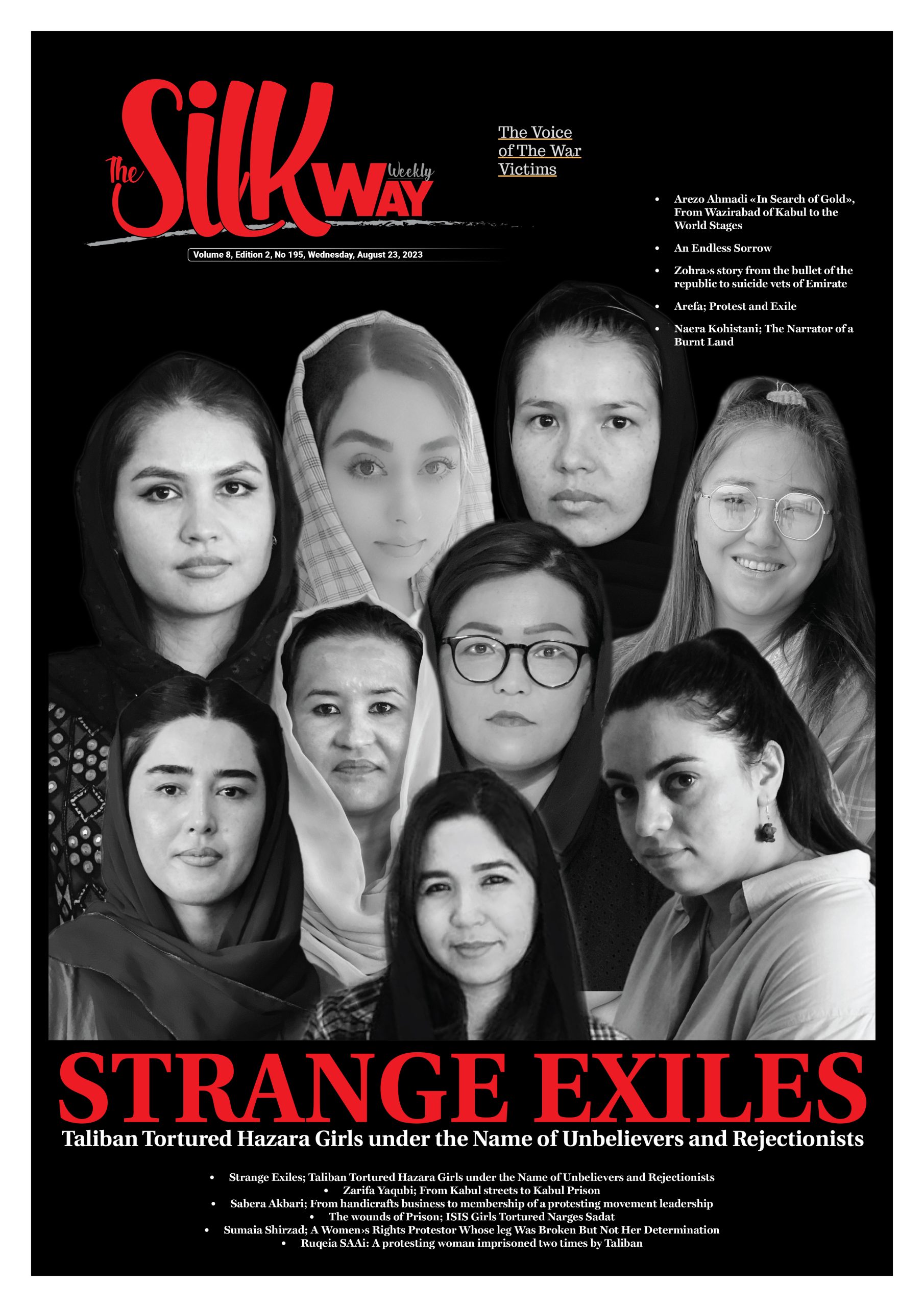 By: Binazir Tahirian
By: Binazir Tahirian
Translated by: Mohammad Rezaie
She has accompanied the cut throat of Tanassom to the presidential palace, the center of power of Afghraf Ghani, the escaping president of Afghanistan and is one of the survivors of Dehmazang bloody suicide attack. Zohra is graduated from high school from one of Jaghhori disticts, Ghazni province, and came to Kabul, the adventurous city, in 2015 to continue her higher education. In Kabul, she realized Ashraf Ghani had a dual and discriminatory behavior towards Hazaras; a policy that dragged her to street protests.
In 2016, when the Enlightenment Movement was formed against the discriminatory decision of the National Unity government on changing the route of TUTAP project from Bamyan to Salang, Zohra participated in the objection programs of the movement from the beginning to the end. She was on the day of the bloody suicide attack on the Enlightenment in the seventh line of the protestors near the containers in Dehmazang. Zohra says amid the explosion the security forces shot on the protestors from the top of buildings and the protestors were falling down. She tried to get to the closest alley to avoid the bullets. “When the suicide bomb went off, I was on the seventh line. Everyone was dispersed. There was a container on our left. I stayed beside the container for a while. I noticed that the soldiers were shooting on the protestors from the top of buildings. I rushed to the alley and fled the scene.” She says.
After the deadly suicide explosion, Zohra started working as a volunteer with “Labkhand Etematd” charity and delivered the aid for the war victims of the west of Kabul for one and a half year.
After the suicide attack on Sayed ul Shohada girls school in Dasht e Barchi, west of Kabul, killing and injuring a number of the students and ruining the school, Zohra prepared pens and notebooks for the students and helped to repair damaged chairs and building of the school.
Zohra had studied nursing in a private university in Kabul, and had a job in a public hospital after passing the employment competitive process. When she received her first salary, she established “Ketabkhanah e Mehrbani” The Kindness Library, in Bahar Sarab Business Center to provide free books for school and university students. Intellectuals gather in this library, read books and sing poems.
Kabul Fell and Initiation of Zohra’s Protests
Kabul collapsed on 15 August 2021, without no major resistance by ANSF and republic government was toppled. After that, a regime was in power in Afghanistan that its senior officials were on the UN black list and it was recognized as a terrorist group.
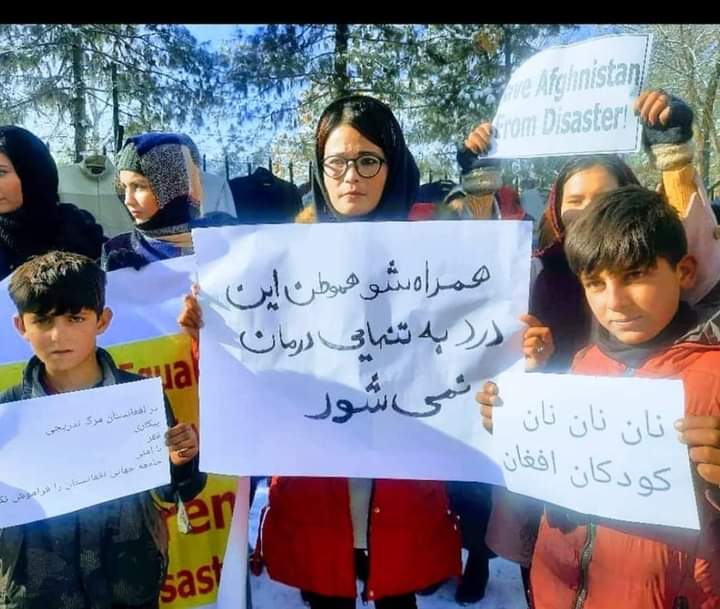 The Taliban group initiates anti women policies after it takes power for the second round in Afghanistan and restricts their freedoms. After retaking power, in a short period, Taliban abolished Ministry of Women Affairs and introduced its all-male, terrorist and Pashtun ethnic-oriented cabinet. Based on the UN Taliban has issued more than 50 edicts to restrict women’s freedoms in Afghanistan from September 2021 to May 2023. Issuing consecutive restrictive edicts on women is a clear sign of the Taliban structured discrimination against women and gender apartheid.
The Taliban group initiates anti women policies after it takes power for the second round in Afghanistan and restricts their freedoms. After retaking power, in a short period, Taliban abolished Ministry of Women Affairs and introduced its all-male, terrorist and Pashtun ethnic-oriented cabinet. Based on the UN Taliban has issued more than 50 edicts to restrict women’s freedoms in Afghanistan from September 2021 to May 2023. Issuing consecutive restrictive edicts on women is a clear sign of the Taliban structured discrimination against women and gender apartheid.
Zohra says that she could not remain silent about the Taliban’s crimes against women and accept the group’s strict rules. “Taliban imposed restrictions on women in hospitals. Taliban appointed their members in oversight and checking sections. They told us we should not come out of the curtain. We could treat emergency cases. Before Taliban, male and female doctors worked together in the emergency room.” She says.
Over time, Taliban criticizes women’s hejab in Isteqlal hospital. This situation puts Zahra in more trouble and this causes her to join the group of protesting girls. She messages to one of the women’s rights protestors and says she wants to join the protests against Taliban. First, she met them in a library in Pul e Sorkh of Kabul and then she joins the street protests.
For the first time, Zohra joined a protest against the Taliban in March 2021, starting from Pul e Khoshk of Barchi and ending in Shaid Mazari Mausoleum. “I organized the protest of March the 8th. I messaged my friends. I made a chat group. 20 girls were added to the group. Then we came to the street.” Zohra says.
Ms. Naeibi told us that she had organized this protest against the all-male and Pashtun oriented cabinet of Taliban which no women were among the cabinet members. But Taliban scattered the protestors by firing into the air and suppressing them. According to Zohra, “at the same time, some girls had held a protest in Pul e Sorkh which Taliban had detained some of the journalists and tortured them. Taliban did not allow the two groups protesting to join each other.”
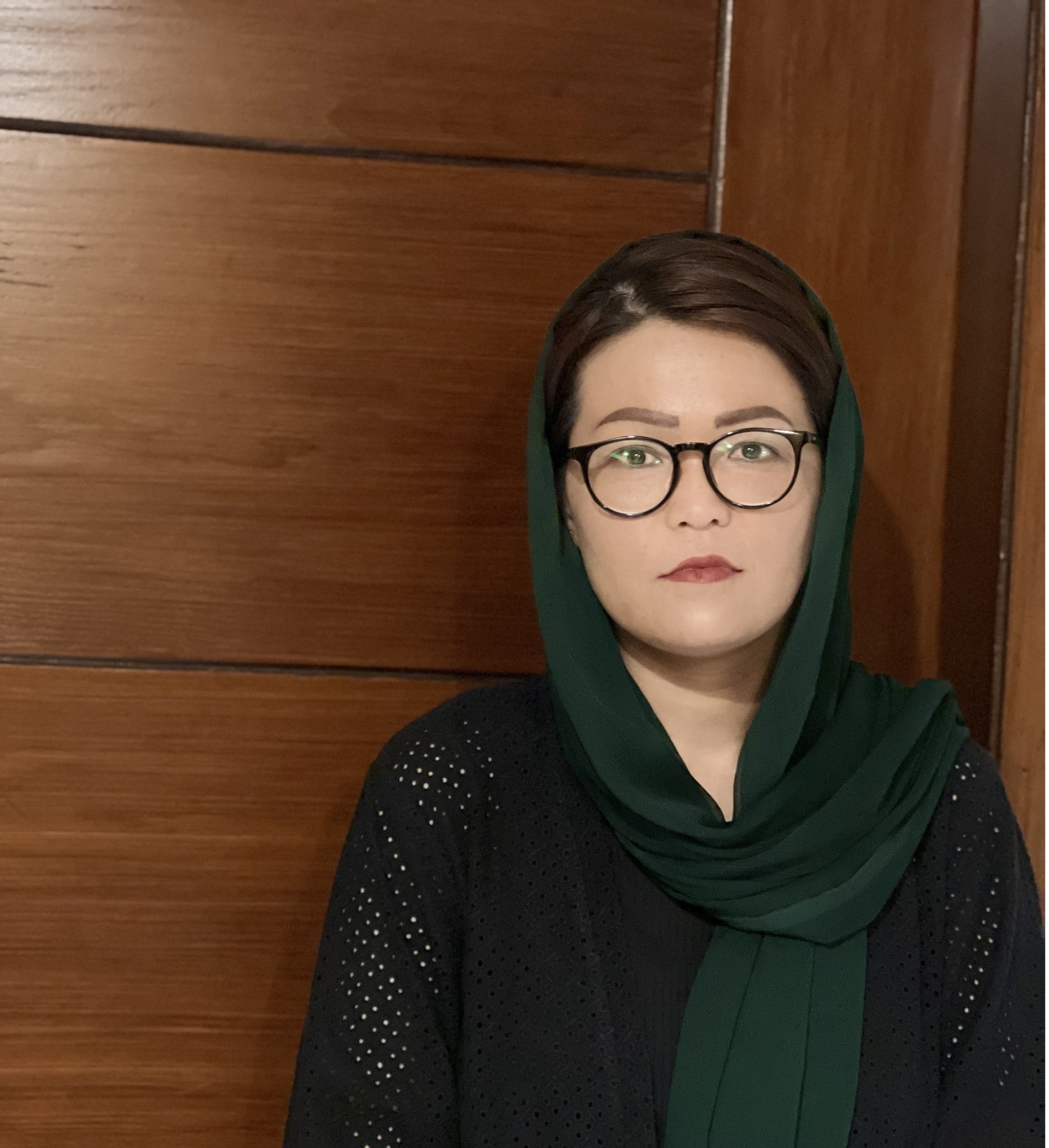 She held the second protest march in front of Habibia high school to urge Taliban to release Alia Azizi and end killing the former security forces and observe the general amnesty. But Taliban violently suppressed the protest and searched Hazara protesting girls from street to street in west of Kabul. After this incident, the protesting girls decided to organize their protests in a protesting movement. As a result, the Movement of Afghan Justice Seeker Women was formed. Zohra joined the movement and organized the protest of Shahr e Naw of Kabul along with some other women’s rights protestors. On those days, Taliban had shot, killed Zainab Abdullahi in Dasht e Barchi, Kabul. The protestors in Shahr e Naw, Kabul asked Taliban to identify the perpetrators of Zainab Abdullahi’s murder. But Taliban responded with suicide vests and firing into the air. Zohra told us the girl protestors fled towards UNAMA office from the fear of Taliban but UNAMA closed its door on them.
She held the second protest march in front of Habibia high school to urge Taliban to release Alia Azizi and end killing the former security forces and observe the general amnesty. But Taliban violently suppressed the protest and searched Hazara protesting girls from street to street in west of Kabul. After this incident, the protesting girls decided to organize their protests in a protesting movement. As a result, the Movement of Afghan Justice Seeker Women was formed. Zohra joined the movement and organized the protest of Shahr e Naw of Kabul along with some other women’s rights protestors. On those days, Taliban had shot, killed Zainab Abdullahi in Dasht e Barchi, Kabul. The protestors in Shahr e Naw, Kabul asked Taliban to identify the perpetrators of Zainab Abdullahi’s murder. But Taliban responded with suicide vests and firing into the air. Zohra told us the girl protestors fled towards UNAMA office from the fear of Taliban but UNAMA closed its door on them.
When the women’s rights protestors were violently suppressed on streets, they changed their struggle approach; they organized their protest in a closed area and writing graffiti. According to Zohra a number of the girls gathered in Hoda Khamosh’s house on the night of Yalda, …!?
Taliban also issued an edict banning women from coming outside of the home without a male chaperone. Taliban warned taxi drivers not to give a ride to such women and not to take them from one side of the city to other side or from city to another one. To enforce its new policy, Talban beat and detained some drivers in different cities of Afghanistan. Zohra says to protest against this decision of Taliban, we gathered in the house of one of our friends and were male’s clothes. In order to tell Taliban, women without a chaperone must come wearing the male’s clothes. Zohra told us she had an interview with BBC after this protest. After the interview, Taliban had found Zohra’s mobile phone number and had repeatedly contacted and threatened her. “Taliban searched me. Contacted me. I was forced to go to Ghazni. I was there for 4 days. Thern, I returned to Kabul and Started the protests against Taliban again.” She says.
When Zohra returned from Ghazni she discovered that Taliban had expelled a number of Hazara female students from Kabul university and poisoned some others on baseless ground. The Women’s rights protestors gathered near Kabul university and chanted “Education is our red line.” According to Zohra, contrary to previous protests, Taliban did not fire into the air but took photo of each of them. After the protest, Parwana Ebrahimkhil, Tamana Pariani and her sister were arrested by Taliban.
The last protest Zohra took part was against unfair distribution of the aids in the west of Kabul by Taliban and it was violently suppressed again. According to Zohra, Taliban searched her after the protest and threatened her via phone calls. As a result, Zohra went to Ghazni again and when she returned from Ghazni to Kabul, she was moved to a safe house in Kabul. “When I returned from Ghazi, they moved me to a safe house. I stayed for one month there. 29 women and girl protestors were shifted to another place. It was planned to take them to the US but Taliban arrested them. Then, we also were shifted to another place. But Taliban identified it. Then, we went to another place. We were evacuated to Pakistan in February and we are here yet.” She says.
According to Zohra Taliban had a double treatment with the female protestors. During the protests, Taliban only chased Hazara protesting girls and took confession by force from them. She says that during one of the protests, Taliban chased and harassed Hazara girls from alley to alley and forced them to confess. But they had nothing to do with other protestors. Out of 29 women and girls who were detained by Taliban from a safe house, Taliban only tortured Hazara girls.” She says. Taliban told Hazara girls that they are unbelievers and rejectionists. When they contacted me, they told me you are unbelievers. They insulted us. Some Pashtun girls had protested against Taliban policies. But they are still in Kabul. They have jobs and are very happy now.” Zohra says.


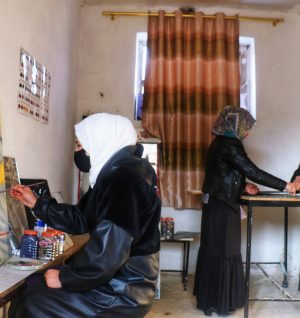
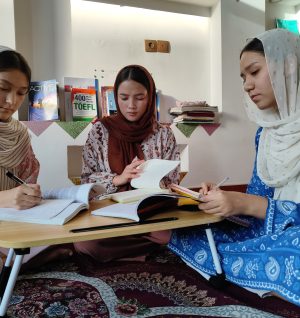
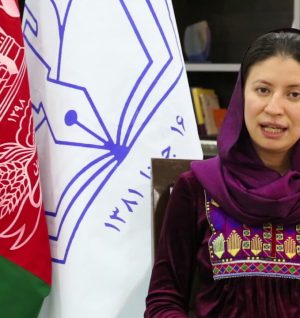
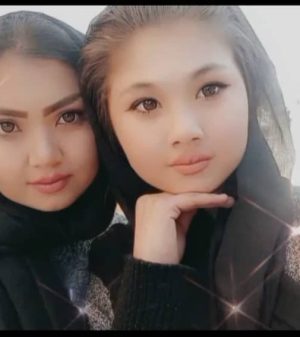
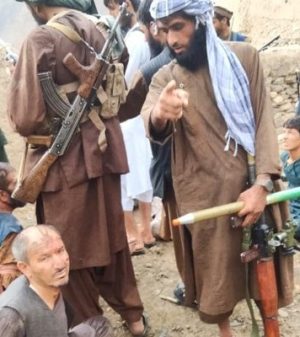
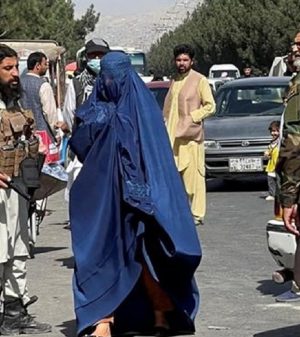
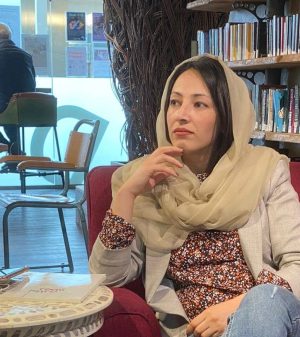
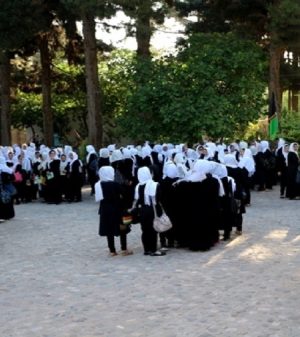
Add Comment